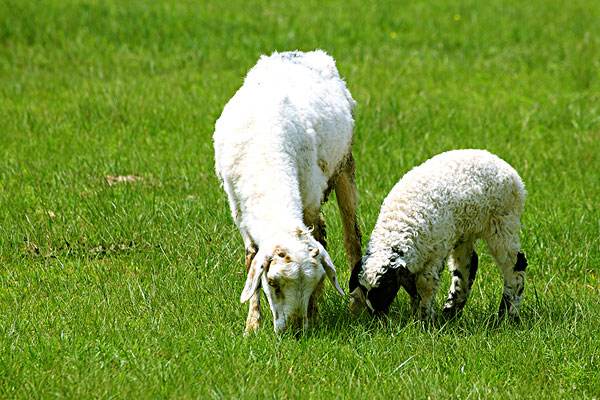Worm disease is one of the most common parasitic diseases in sheep parasitic diseases. Including nematode, trematode and tsutsugamushi, widely distributed in different parts of China.
First, the harm of sheep helminthiasis
Some worms that are parasitic in various organs of the sheep can cause serious pathological changes and are often unrecoverable. If the sheep suffer from trematode disease, the amount of shearing is reduced by 7% to 12%. In addition, if the disease is in a hurry, it often causes the death of sheep, especially sheep. If the sheep suffers from the high-intensity attack of the extended Moniz mites, it will cause a large number of deaths of the larvae. Infection of the double-chambered trematode in sheep can greatly affect its production performance. It is often the case that the flukes of the flukes and the trematode are parasitic in the liver of the sheep, and the pathogenic effect is enhanced.
Most of the worms in sheep are consumptive diseases, mostly chronic, but there are also acute outbreaks, such as liver schistosomiasis in sheep. If it is determined according to various diagnostic methods that the cause of the disease belongs to parasitic trematodes, aphids, and nematodes, the transmission link should be treated according to the type of the confirmed parasite and its biological characteristics, and the specific drug or broad-spectrum anthelmintic drug should be selected for the diseased sheep. Treatment.
Second, the prevention and treatment measures of sheep helminthiasis
(1) Nematode disease: Deworming once every spring or autumn or once every quarter. Commonly used drugs: levamisole, according to 8 to 10 ml of water per kg body weight. Abamectin injection is administered intramuscularly at 0.2 mg per kilogram of body weight. Acethiophenidazole, administered at a dose of 5 to 10 mg per kilogram of body weight.
(2) trematode disease: Deworming is carried out twice a year in spring and autumn. Commonly used drugs: aziridine is 5-15 mg per kilogram of body weight, orally. Or subcutaneous injection of 20% iodine nitrate, 0.5 ml per kg body weight. In addition, insect repellent, carbon tetrachloride, nitric acid and the like are also acceptable.
(3) Ascariasis: Each deworming is carried out once a year in spring, summer and autumn, and is mixed with sulphur dichlorophenol (Bed) at a dose of 80-100 ml per kg of body weight.
Third, the use of deworming drugs for sheep disease:
(1) Propofil-imidazole has a killing effect on nematodes, trematodes and aphids, and it is used when killing trematodes and aphids more than when killing nematodes. It has been reported that albendazole has a teratogenic effect on embryos. Therefore, it is especially prudent to use this medicine for pregnant ewes, and it is best for the ewes to worm before breeding.
(2) Some deworming drugs, if long-term single use or unreasonable use of drugs, parasites have developed resistance to drugs, sometimes causing poor deworming effect. The prevention of drug resistance can be solved by reducing the number of medications, rational use of drugs, and cross-medication.
(3) At present, the dosage forms of avermectin include tablets, powders, injections and the like. Some products are made with mycelium or even with drug residues. Some injections are not sustained-release preparations. The efficacy is not 28 days, and it needs to be injected once every 5 to 6 days.

Hui Nongwang Xiaobian warmly reminded to improve the sanitation of the sheep pen and activity field during deworming, and create a good recovery environment for the flock.
Earbuds Design Hearing Aid
Earbuds Design Hearing Aid
Shenzhen Sunshine Technology Co.,Ltd , https://www.yatwinsz.com